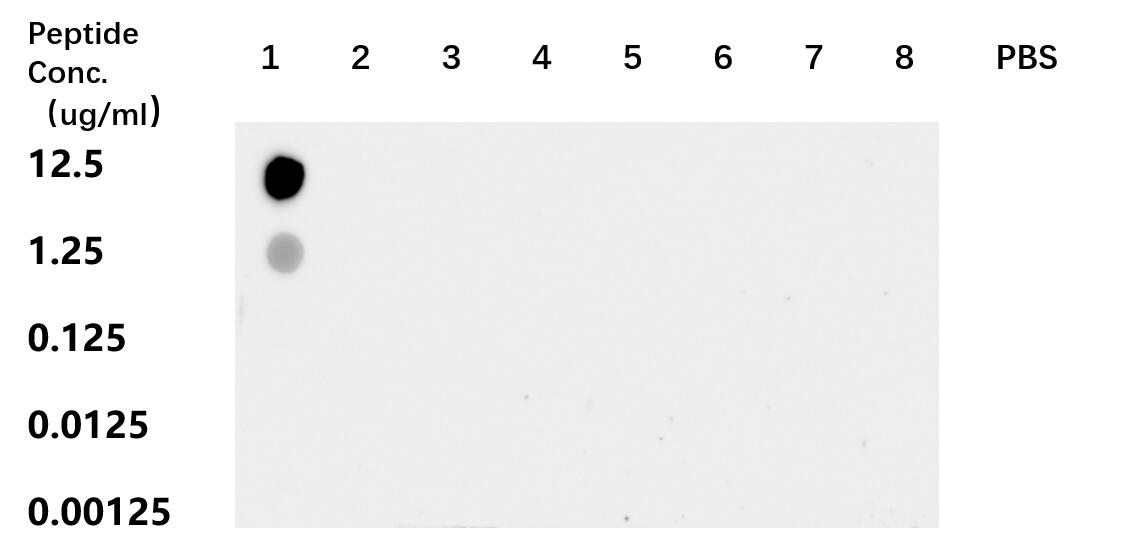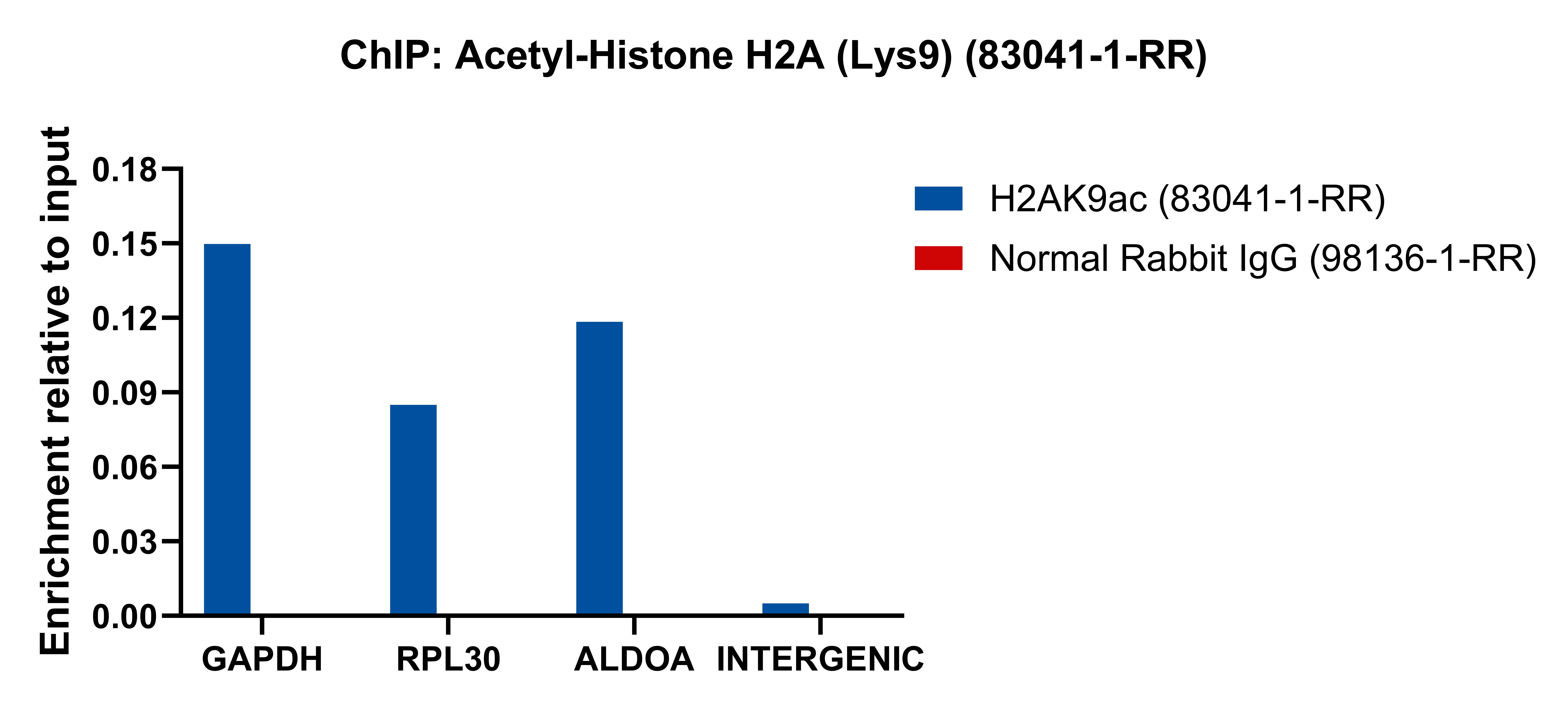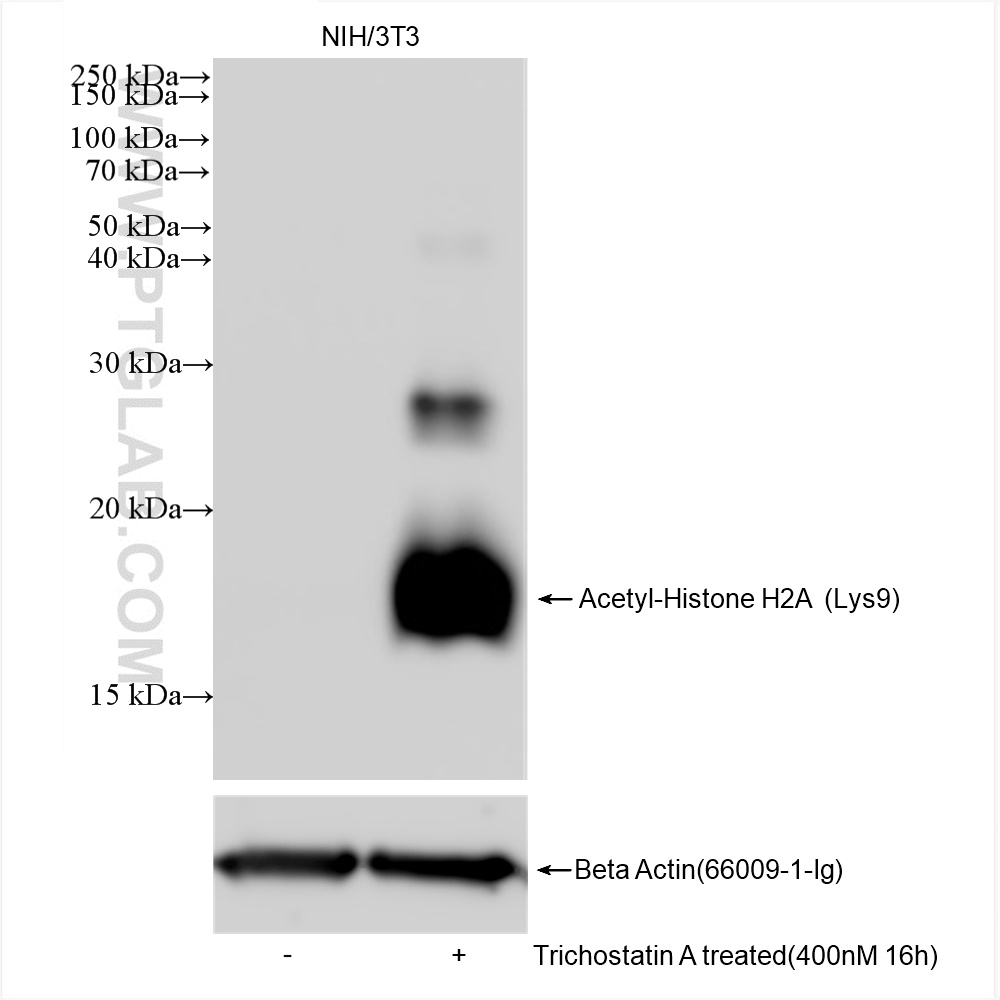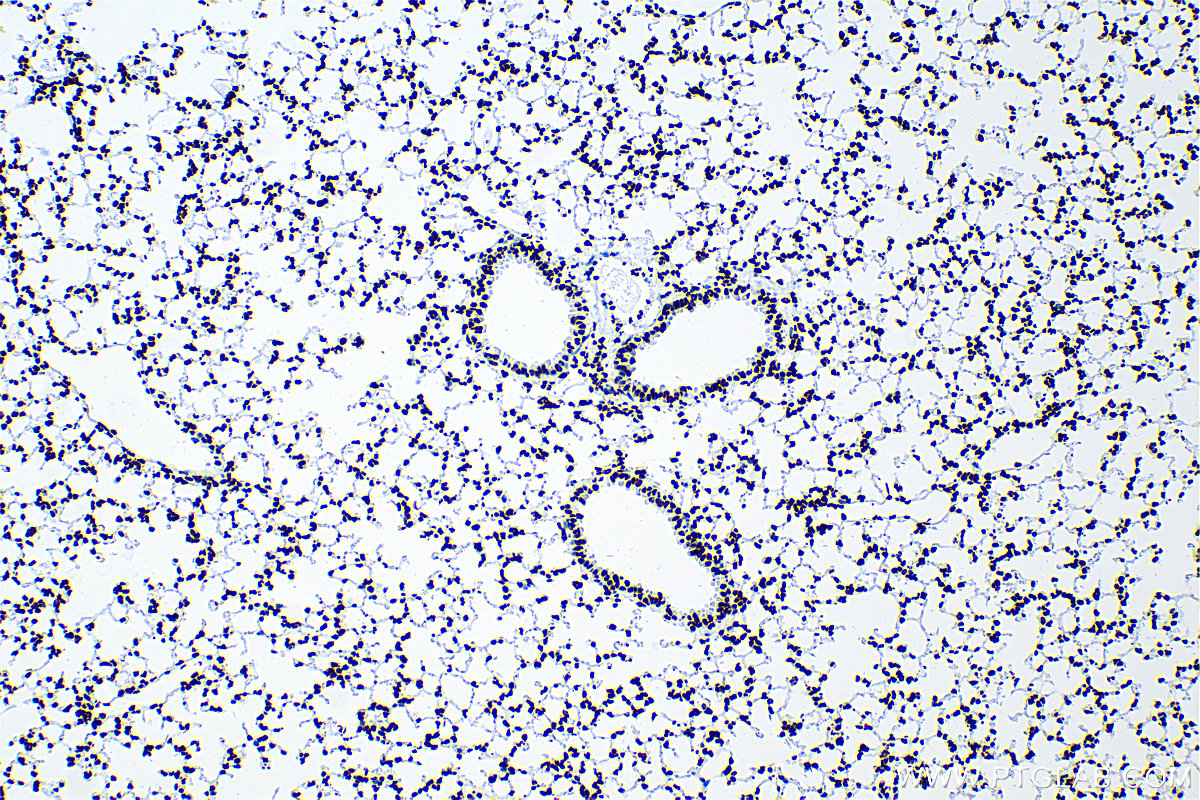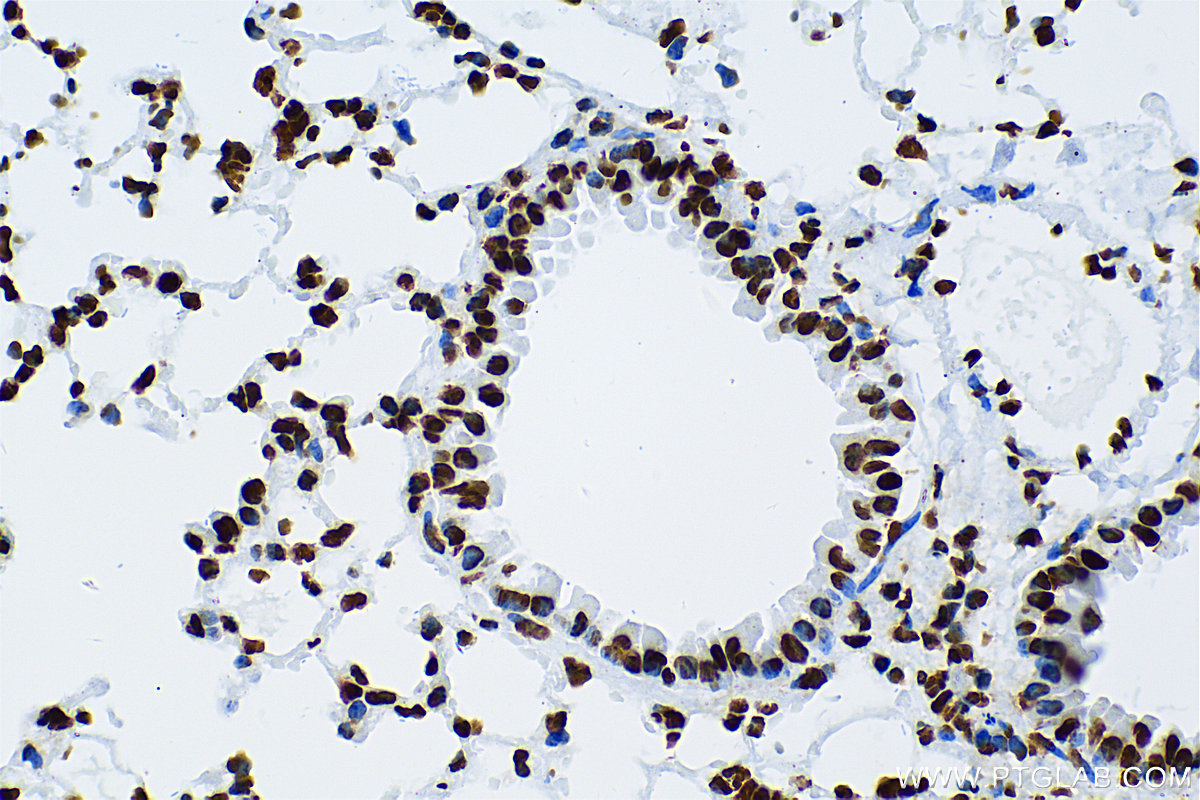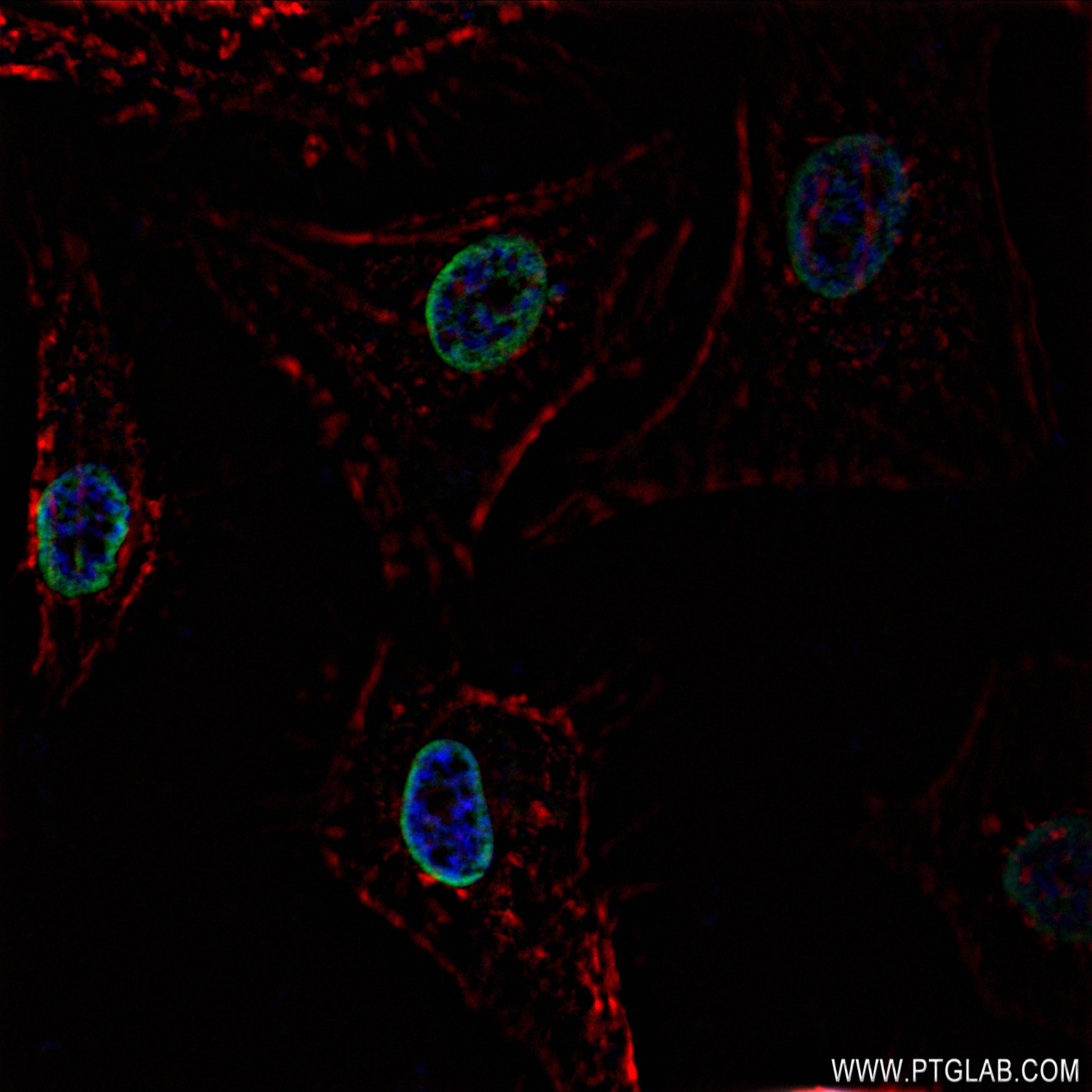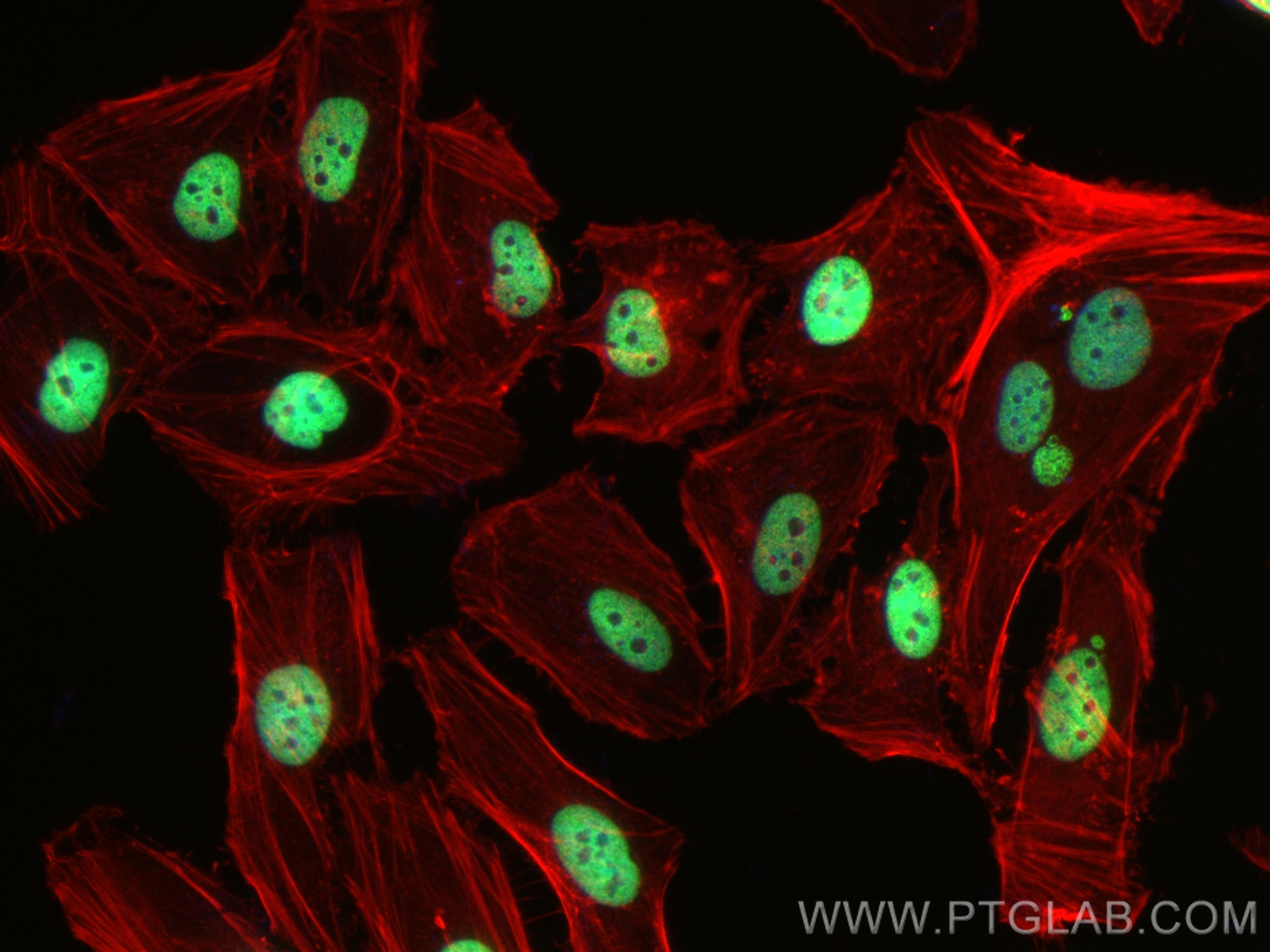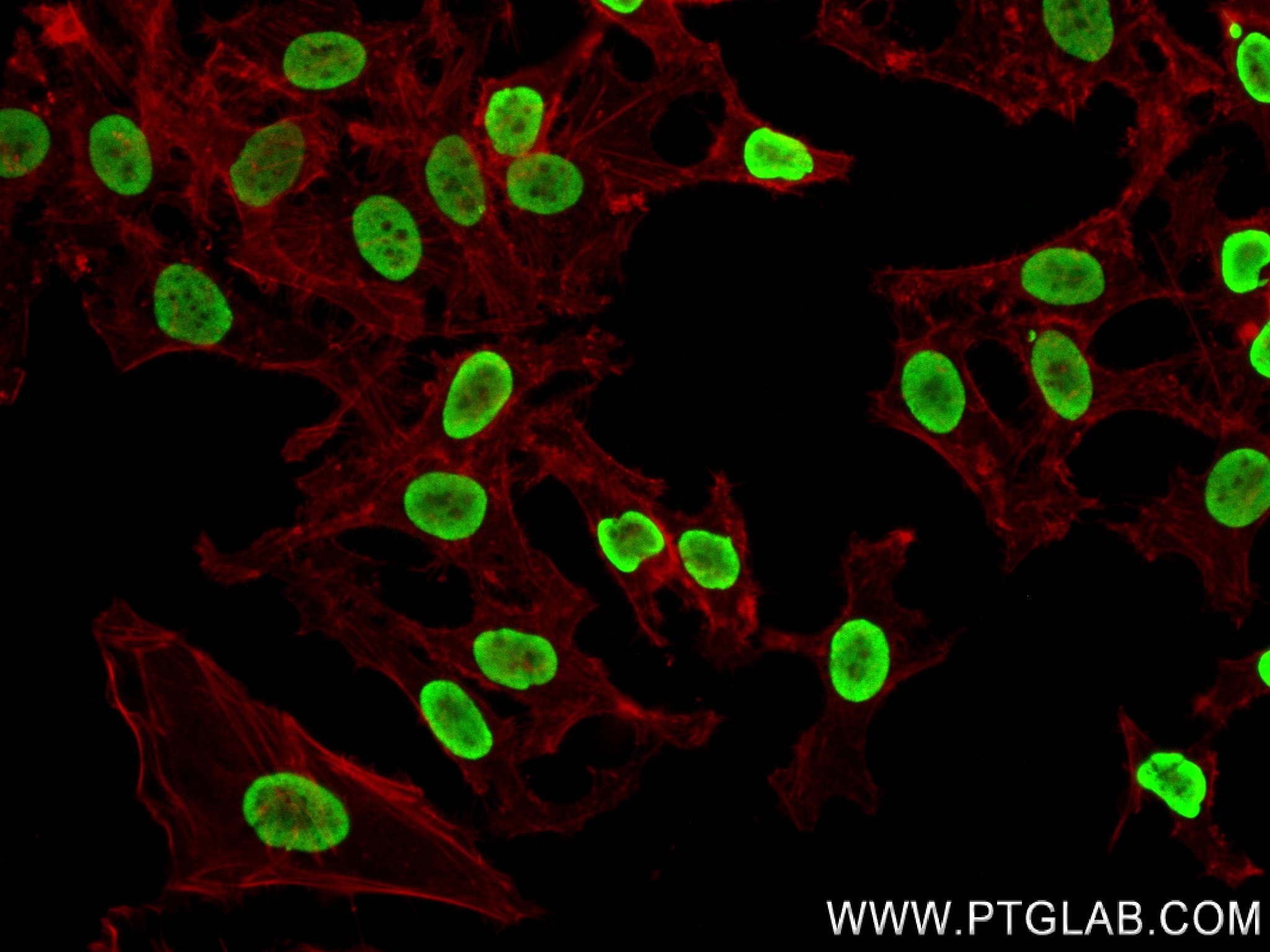验证数据展示
产品信息
83041-1-PBS targets Acetyl-Histone H2A (Lys9) in WB, IHC, IF/ICC, Dot Blot, Indirect ELISA, ChIP-qPCR applications and shows reactivity with human, mouse samples.
| 经测试应用 | WB, IHC, IF/ICC, Dot Blot, Indirect ELISA, ChIP-qPCR Application Description |
| 经测试反应性 | human, mouse |
| 免疫原 |
Peptide 种属同源性预测 |
| 宿主/亚型 | Rabbit / IgG |
| 抗体类别 | Recombinant |
| 产品类型 | Antibody |
| 全称 | histone cluster 1, H2ae |
| 别名 | Ac Histone H2A, Ac Histone H2A (Lys9), Ac Histone H2A Lys9, Ac Histone H2A-Lys9, Acetyl Histone |
| 计算分子量 | 14 kDa |
| 观测分子量 | 14 kDa |
| GenBank蛋白编号 | BC093836 |
| 基因名称 | HIST1H2AE |
| Gene ID (NCBI) | 3012 |
| 偶联类型 | Unconjugated |
| 形式 | Liquid |
| 纯化方式 | Protein A purification |
| UNIPROT ID | P04908 |
| 储存缓冲液 | PBS only, pH 7.3. |
| 储存条件 | Store at -80°C. The product is shipped with ice packs. Upon receipt, store it immediately at -80°C |
背景介绍
Histone H2A is a core component of nucleosome. Histone variants contribute to chromatin complexity by creating specialized nucleosomes. Within nucleosomes, either one canonical H2A or both of them can be exchanged with a particular variant (heterotypic and homotypic nucleosomes, respectively), and such changes can have profound influences on nucleosome stability and biological outcome.

